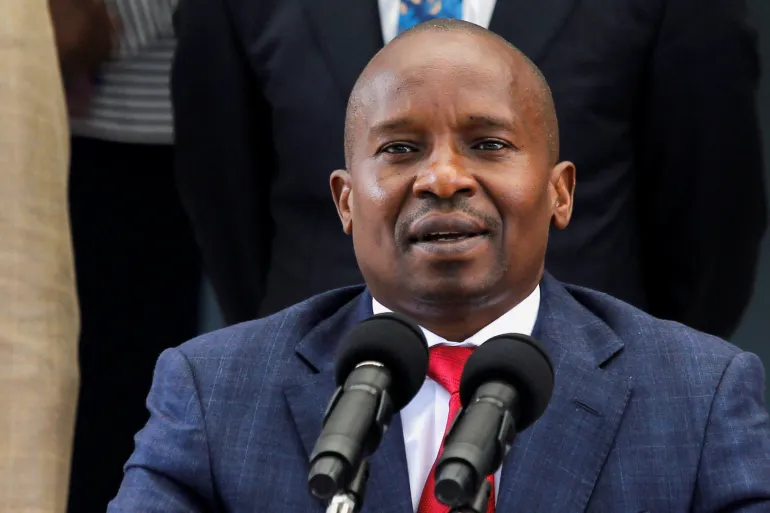Deputy President Kithure Kindiki has reiterated the government’s unwavering commitment to transform the Nyanza region economically through strategic investments in key sectors including agriculture, transport, fishing, energy, and education.
Speaking during the launch of the Shield Okumba SACCO and an economic empowerment initiative for women, youth, and persons with disabilities in Muhoroni, Kisumu County, Kindiki emphasized that the Kenya Kwanza administration is focused on inclusive development.
“The government is deliberately targeting critical areas like sugar and fish production to revive the region’s economic engines,” said the Deputy President. He revealed that revival efforts for major sugar mills Sony, Muhoroni, Chemelil, Miwani, and Nzoia—are already underway through public-private partnerships. These reforms aim to ensure cane farmers receive timely payments and annual bonuses, akin to those in the tea and coffee sectors.
Kindiki announced that 17 Economic Stimulus Programme (ESP) markets are being built across Kisumu County to support small-scale traders. He also highlighted ongoing infrastructure upgrades, including the resumed construction of the 52km Mamboleo–Miwani–Muhoroni road to boost transport efficiency in the region.
In a significant boost to the blue economy, the government has prioritised the construction of modern fish landing sites equipped with cold storage facilities along Lake Victoria, covering Homa Bay, Migori, Kisumu, Siaya, and Busia counties. The initiative aims to curb post-harvest losses, enhance value addition, and sustain livelihoods of fisherfolk through Beach Management Unit grants.
On healthcare, Kindiki noted that 25 million Kenyans have enrolled in the Social Health Authority (SHA) insurance scheme, with Kisumu registering 600,000 residents. The government’s goal is to achieve 100% health coverage in the next two years.
In a move to curb youth unemployment, the Deputy President confirmed that President Ruto has reinstated the Kazi Mtaani programme, offering youth work in environmental clean-up efforts.
Kisumu is also a key beneficiary of the affordable housing programme, with 2,348 units underway in Lumumba Estate. Plans are in place to expand the project to Muhoroni and other satellite towns, including construction of student hostels for regional institutions.

